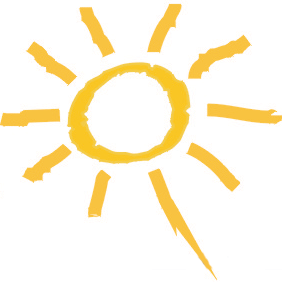The hot wind is embracing me, swirling my hair, and naughtily lifting up my pleated skirt. Around me is desert, the mountain chain in the back can only be guessed through the shimmering, sandy air. The heavy smell of sand and sea is reaching my nose, a smell that puzzles whenever I come back to the Red Sea coast, be it only from the river Nile.
I am back to Hurghada. This time, it was hard for me to leave my home country – the time was too short to do everything I wanted to do and too short to see all my friends. Yet, Hurghada made it easy for me; it gave me a warm welcome.
My flat was intact – no burglary, no water damage or other adversities. The air condition is functioning bravely; tepid water is running from the taps and from the shower. At the airport, I realised already: Hurghada is full of tourists, busy, chaotic, a bit bustling as always… or to put it right: as it should be and as it hasn’t been for a couple of months. Cairo and its demonstrations are far and show themselves externally only on TV, internet and in the newspapers.
Today is the first day of Ramadan and somehow the atmosphere leaves a ceremonious impression on me. At night, streets, mosques and buildings are decorated with garlands and thousands of lights. People wish each other Ramadan kariim (generous Ramadan) and gifts are distributed to the poor and needy.
By means of one of my ardently beloved minibuses I go to the market to get fresh fruit and vegetables. On the way, the driver stops in order to see why a group of men is gathering at the roadside: there is a man lying on the street. After having watched for a couple of minutes, the driver continuous the ride through the chaotic evening traffic. No passenger complained – for sure this would have been rather different in Switzerland. The market is loaded with mangoes and grapes, melons and other juicy fruits – amidst the well-known low hygienic standard and the bothersome pushing and shoving from other customers and the all drowning shouting of the sellers.
Yes I see, I’m back to Egypt.


